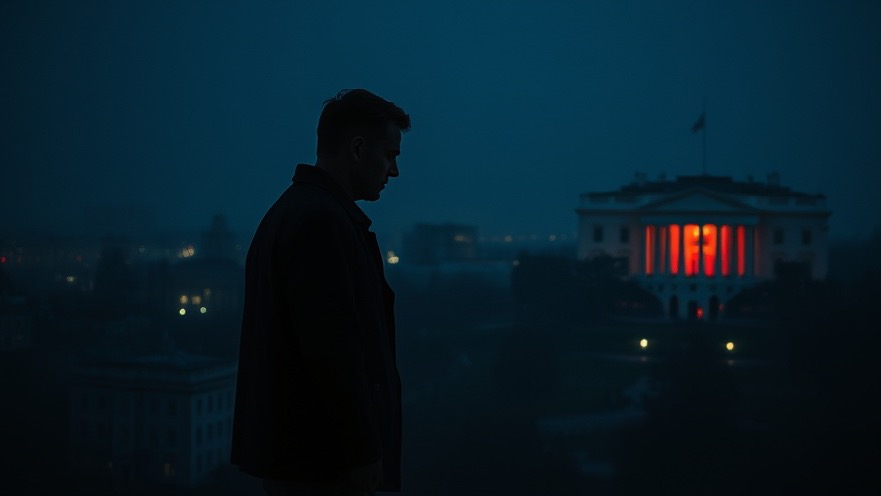
Unmasking the Shadows: Understanding the Deep State Debate
The video titled Shadow Government Exposed draws attention to complex issues surrounding political deception, prophetic voices, and how residents navigate through the confounding narratives led by social elites. In this captivating discourse, Joseph Z, Todd Coconato, and Alan DiDio dissect the recent storm of conspiracy theories—including the ever-controversial Trump-Epstein allegations and the implications of a potential cyber pandemic—inviting viewers into a profound dialogue that extends beyond mere speculation.
In 'Shadow Government Exposed', the discussion dives into complex conspiracy theories, exploring key insights that sparked deeper analysis on our end.
The Rise of Conspiracy Theories in Modern Discourse
In an era where misinformation is rampant, understanding the genesis of conspiracy theories is crucial for discerning believers. The panel discusses pivotal incidents tied to political narratives, such as the Russia hoax and the Epstein files. Those situations illustrate a larger trend of doubt sowed into the political fabric of America, reflecting a deep-seated unrest among citizens. Joseph Z notes that what we often perceive as chaotic narratives may serve a more profound purpose, fueling discontent that can ultimately threaten our core beliefs as Christians.
The Spiritual Dimension of Political Engagement
While many might view political matters as strictly temporal, the discussion emphasizes the spiritual battle enmeshed in these events. Both Coconato and Z argue that the church has a vital role in prayer and intercession for leaders. The idea that faith must lead political involvement resonates across Christian communities. Ephesians 6:12 reminds us that our struggle transcends flesh and blood, urging believers to approach these discussions with a spiritual lens. Engaging in such conversations not only informs but galvanizes congregations into action through prayer.
Future Predictions: Navigating the Road Ahead
The narrative unfolds into speculative territory as these leaders express their thoughts on future trends, particularly regarding the American political landscape. Speculations around a new political party echo prophetic words from years past. Alan DiDio references the predictive insights of prophetic voices like Kim Clement, suggesting that the emergence of an “American party” may reshape future governance. As believers, it is imperative to remain vigilant about potential changes and participate actively in shaping societal trends through faith-infused actions.
Completing the Narrative: The Need for Accountability
Finally, the discussion pivots towards the concept of accountability in modern governance. Reflecting on the implications of the Epstein situation, the need for transparency within political frameworks becomes paramount. Z emphasizes the connectedness of today’s political elite with the dark practices underpinning such scandals. This call for transparency resonates deeply with the audience, posing poignant questions: How do we, as believers, foster a climate where leaders are held accountable? It challenges the church to play an active role in promoting justice that reflects the honor of Christ and protects the most vulnerable in society.
As viewers digest the multifaceted layers of these discussions, an understanding emerges: the narratives driving our political landscape are intertwined with the spiritual ethos of our faith. Consequently, staying alert to both spiritual implications and political developments fosters a resilient church ready for action.
 Add Row
Add Row  Add
Add 




Write A Comment